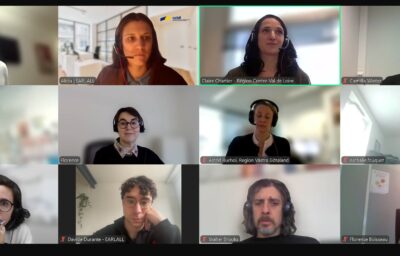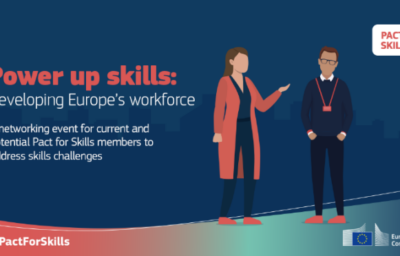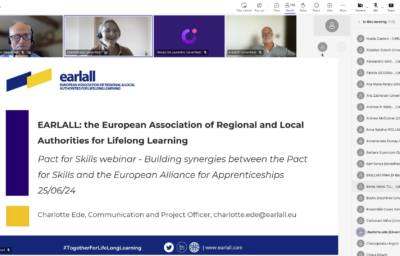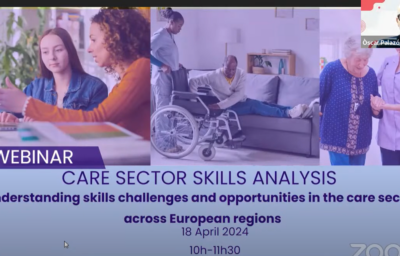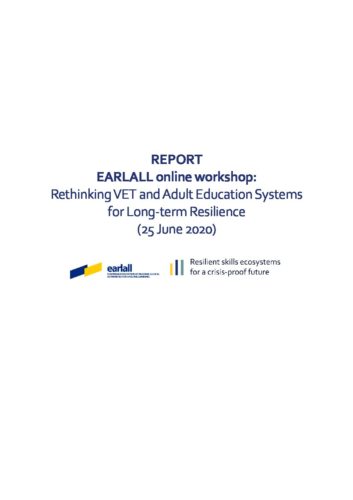Skills & Labour Market
About
The Working Group on Skills and the Labour Market is run by the Ministry for Education in the regional government of Catalonia. It works to respond to the four strategic priorities of EARLALL (2023-2028) through four areas of action: capacity building; responding to policy; outreach and cooperation and projects and project events. The Working Group in Skills and the Labour Market is key in EARLALL’s participation in the Pact for Skills, the Harnessing Talent’s group on Research and Innovation and the European Alliance for Apprenticeships.
The Working Group is helping to deliver the goals of the EARLALL Strategic Priorities (2023-2028) in the following ways:

Capacity-building

Responding to policy

EU projects and events

Outreach and cooperation
Strategic Actions of the Working Group
Strategic Priority 1: Working towards skills for the future at the regional level, through innovation in lifelong learning
The Working Group exchanges best practices on skills provision for the future in our regions, through regular online meetings. The Working Group leaders propose topics for discussion, for example, sectoral skills analysis, and the members build the programs.
Strategic Priority 2: Facilitating mobility and internationalisation across the EARLALL network and outreach
The Working Group conducts research and analysis of current lifelong learning systems in the regions, facilitating mobility across borders. Moreover, from the Working Group many of EARLALL’s projects are developed, encouraging cross-border collaboration.
Strategic Priority 3: Supporting the resilience of lifelong learning structures in the face of demographic and societal changes
The Working Group is committed to understanding the challenges and opportunities that certain local communities face during the skills transformation Europe is experiencing. In this light, the Working Group focuses on skills in a wide range of regions and sectors: from rural and agriculture to the blue economy and ex-industrial regions.
Strategic Priority 4: Remaining at the forefront of policy development at the EU level
In 2023-2024, the following are policy areas where the Working Group will be following up:
- CoR consultation on “Skills and Talent Mobility”.
- Evaluation of the Digital Education Action Plan
- Implementation of the EU Talent Pool
- Union of Skills: Skills Portability Initiative
- Harnessing Talents Working Group on Research and Innovation
- Continue to follow up on the stakeholder consultation related to the Erasmus+ Evaluation.




